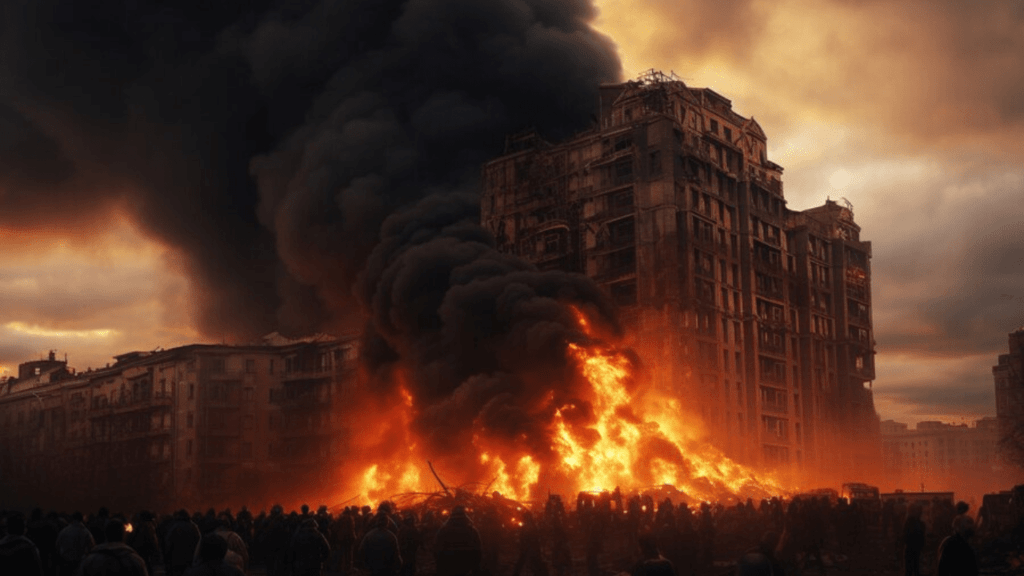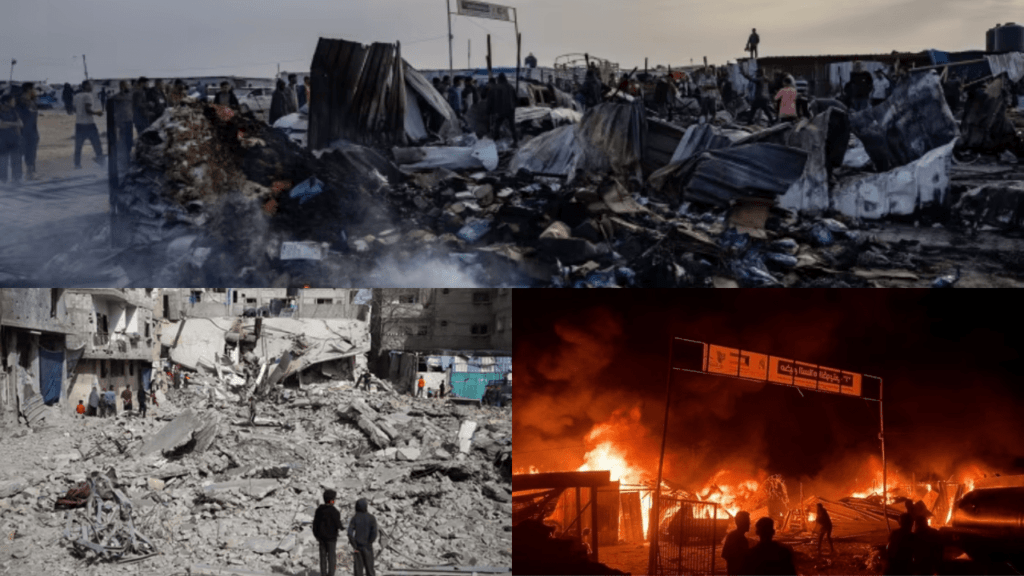In the heart of the Middle East, the Rafah border crossing, the only passageway between the Gaza Strip and Egypt, stands as a symbol of hope, despair, and resilience. Recent events in Rafah have brought to light a humanitarian crisis that demands the world’s attention. The Rafah incident is not just a geopolitical issue; it’s a human story of suffering, survival, and the quest for dignity amidst adversity.

The Geopolitical Context
To understand the Rafah incident, one must first grasp the broader context of the Israeli-Palestinian conflict. The Gaza Strip, a small but densely populated region, has been under an Israeli blockade since 2007 when Hamas took control. This blockade severely restricts the movement of people and goods, leading to widespread poverty and desperation. The Rafah border crossing, controlled by Egypt, has been the only exit point for Gazans seeking medical treatment, education, and a semblance of normal life.
The Incident
In recent months, the Rafah crossing has seen heightened tensions and tragic incidents. Reports emerged of a violent crackdown by Egyptian authorities on Palestinians attempting to cross into Egypt. The border, often closed or operating at limited capacity, became a site of chaos as thousands of Gazans, desperate for relief, tried to push through.
Eyewitness accounts describe harrowing scenes: families torn apart, children crying amidst the turmoil, and the elderly collapsing under the weight of their exhaustion and despair. The Egyptian military’s response has been criticized for its brutality, with reports of live ammunition being used against unarmed civilians. This has resulted in numerous casualties and a humanitarian outcry.
Rafah: The Recent Airstrike
Adding another layer of tragedy to the Rafah incident are the recent airstrikes by the Israeli military. On a recent Sunday night, Israeli forces bombed a tent camp in Rafah that housed displaced Palestinians. This camp was designated as a safe zone, yet it became a target, resulting in the deaths of 45 people. The airstrikes have continued to pound the southern city, exacerbating the already dire humanitarian situation.
The airstrike resulted in significant casualties, with many innocent civilians caught in the crossfire. Hospitals, already overwhelmed by the ongoing crisis, struggled to cope with the influx of injured people. Among the casualties were women and children, their bodies bearing the scars of a conflict they had no part in creating.
Survivors of the airstrike recounted scenes of horror. One resident, Mahmoud, described the moment the bomb hit: “It was like the ground opened up. There was fire everywhere, and the screams… they will haunt me forever.” His account mirrors the anguish felt by countless others who find themselves trapped in a war zone with no escape.

Rafah: The Human Toll
The Rafah incident is not just about numbers; it’s about people. Each statistic represents a human being with hopes, dreams, and fears. The blockade has left Gazans in a perpetual state of siege, with limited access to essential services. Hospitals are overwhelmed, lacking medical supplies and personnel. Schools operate under constant threat, with children struggling to learn in an environment of fear and instability.
One poignant story is that of Amina, a 32-year-old mother of three, who was trying to cross into Egypt to seek medical treatment for her ailing son. She described the ordeal at Rafah as a nightmare, with families crammed together, waiting for days without food or water. “We were treated like animals,” she said, tears streaming down her face. “All we want is to live, to have a future for our children.”
Rafah: The Broader Implications
The Rafah incident underscores the dire need for a comprehensive solution to the Israeli-Palestinian conflict. The blockade, while intended as a security measure, has had devastating humanitarian consequences. The international community’s response has been tepid at best, with calls for action often drowned out by political rhetoric and competing interests.
The situation in Rafah also highlights the role of Egypt in the conflict. As a key player in the region, Egypt’s policies and actions have significant implications for the humanitarian situation in Gaza. While Egypt has legitimate security concerns, its approach at Rafah has been widely condemned for exacerbating the suffering of ordinary Palestinians.
Calls for Action
In light of the Rafah incident, human rights organizations and activists are calling for immediate action to address the humanitarian crisis. Key demands include:
- Opening the Rafah Crossing: There is an urgent need to ensure that the Rafah border crossing is open and accessible, allowing for the free movement of people and goods. This would alleviate the suffering of those in need of medical care, education, and other essential services.
- Humanitarian Aid: Increased humanitarian aid is essential to support the beleaguered population of Gaza. This includes medical supplies, food, water, and other necessities. The international community must step up its efforts to provide sustained and effective assistance.
- Political Solutions: Ultimately, the crisis in Gaza cannot be resolved without addressing the root causes of the conflict. This requires renewed efforts toward a comprehensive peace agreement that ensures the rights and security of both Palestinians and Israelis.
The Path Forward
The Rafah incident is a stark reminder of the human cost of the ongoing conflict. It is a call to action for the international community to prioritize humanitarian needs and work towards a sustainable peace. The resilience of the people of Gaza, their strength in the face of unimaginable hardships, is a testament to the human spirit’s enduring hope.
As global citizens, it is our responsibility to bear witness to their suffering and advocate for change. The Rafah incident should not be just another tragic headline; it should be a catalyst for a renewed commitment to justice, dignity, and peace for all.
In conclusion, the Rafah incident highlights the urgent need for a humanitarian and political response to the crisis in Gaza. The stories of those affected, like Amina and countless others, must not be forgotten. Their plight should inspire us to act, to push for policies that prioritize human life and dignity over political interests. Only then can we hope to see a future where the people of Gaza can live in peace and security, free from the shadow of conflict and despair.
Read Next:

The Psychology of Love: Why Valentines Day Matters More Epic Than You Think
Discover the psychology of love and why Valentines Day is more important than you think. Learn how love impacts the brain, strengthens relationships, and boosts

Premier League Highlights: Arsenal Humiliate Man City 5-1, Spurs and Palace Secure Crucial Wins
Arsenal demolished Manchester City 5-1 in a statement premier league highlights win, reigniting their title hopes. Meanwhile, Crystal Palace stunned Man United 2-0, and Tottenham

How Budget 2025 Impacts the Indian Middle-Class: Major Tax Benefits and Glaring Omissions
Budget 2025 offers major tax relief to the middle class, including zero tax on incomes up to ₹12 lakh. However, it misses out on incentives
